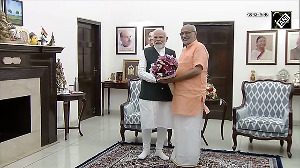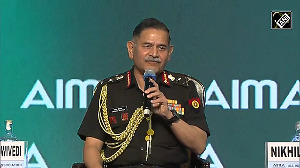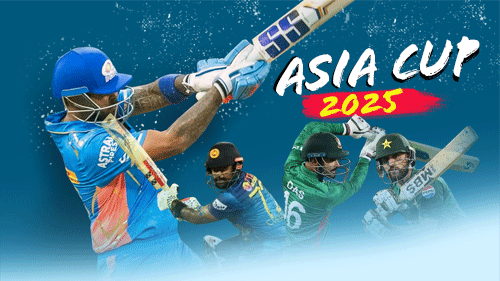North and South Korea are expected to clinch a long-awaited deal on fielding a unified team for the 2008 Beijing Olympics by August this year, South Korea's Olympic chief said on Tuesday.
"We will reach some agreement, hopefully by August," National Olympic Committee President Kim Jung-kil told Reuters in an interview at a meeting of NOCs in Seoul.
Still technically at war more than half a century after their armed conflict on the peninsula, the two Koreas first considered competing as a joint team for the 1964 Tokyo Olympics, but years of acrimony and military tensions meant it remained just an idea.
Kim said there had been several meetings between the two Olympic committees and the groundwork had been laid for a unified team but there were still differences over the selection and the number of athletes.
"The two sides have a problem of discrepancy regarding the selection process and criteria and number of athletes," Kim said, hinting a partially unified team could enter this year's Asian Games in December.
"Yes, it is possible because we do not have a qualifying process for entry into these Games," Kim said of a fully unified Korean team for the Games in Doha.
"PARTIALLY UNIFIED"
"If not in its entirety then a partially unified team, which we can use as a benchmark for 2008," Kim said.
He said the idea had the backing of the International Olympic Committee. "IOC president (Jacques) Rogge supports this idea," he said.
South Korea, with a larger population and better-funded sports associations, has more world-class athletes than North Korea.
At the 2004 Olympics in Athens, South Korea won 30 medals, including nine golds, while North Korea tallied five with no golds.
Athletes from the two Koreas have joined hands and marched before under one flag -- showing a united Korean peninsula in blue against a white background -- at the 2000 Sydney Olympics and in Athens as well as this year's Turin Winter Olympics.
They then competed for their separate countries.
North and South Korea competed as a single team in an aborted experiment in soccer and table tennis in the early 1990s. West and East Germany remained tough sporting rivals right up to unification in 1990.
Kim said the two sides would meet again over the coming days on the sidelines of an international sports conference to work on their plan.







